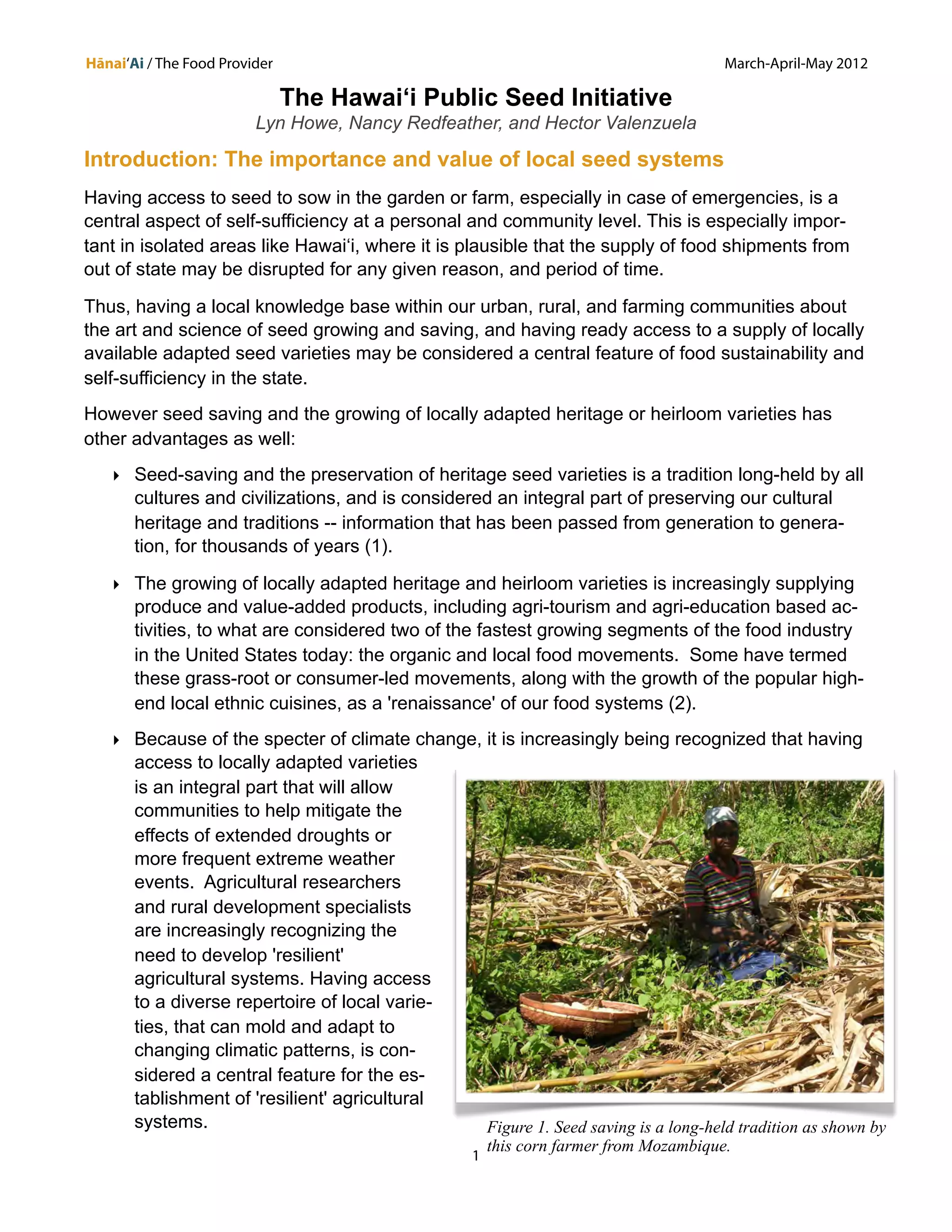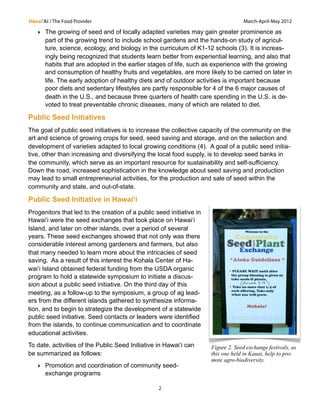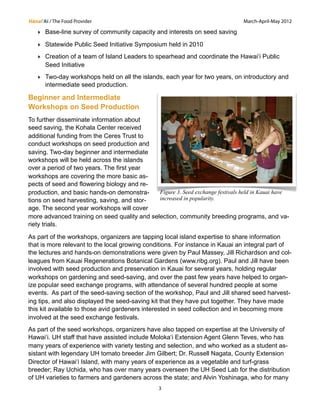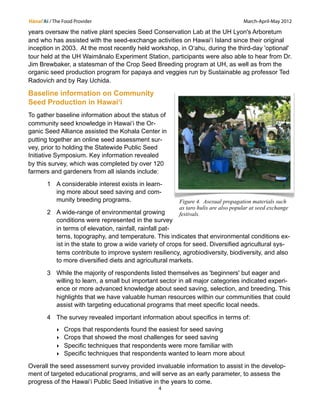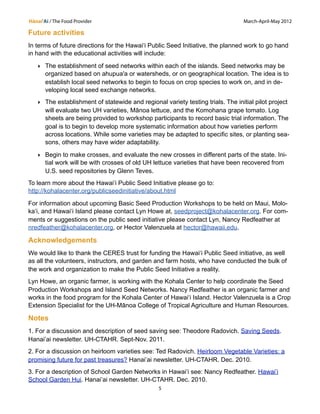The document discusses the Hawaii Public Seed Initiative, which aims to increase community knowledge and capacity for growing, saving, and storing locally adapted seed varieties. It provides an overview of the importance of local seed systems and seed sovereignty. Workshops have been held across Hawaii to teach beginner and intermediate seed production skills. Future plans include establishing island-based seed networks and conducting variety trials to evaluate crop performance in different locations. The initiative aims to enhance food security, cultural preservation, and agricultural resilience in Hawaii.
